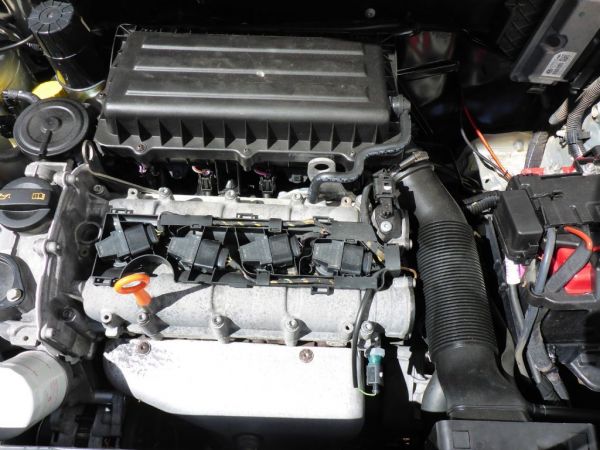Just How a Clp Engine Can Enhance Effectiveness in Numerous Industries
The development of CLP engines marks a significant change in functional performance throughout numerous sectors, driven by their capacity to optimize gas usage and lessen downtime. Industries such as manufacturing and logistics stand to gain considerably from their robust design and constant power result, which promise to enhance operations and improve productivity. As companies significantly focus on sustainability along with efficiency, the role of CLP engines becomes a lot more critical. What stays to be seen is how these advancements will certainly form the future landscape of industrial procedures and their influence on wider economic patterns (clp engine).
Summary of CLP Engines
CLP engines, or Constant Liquid Propellant engines, stand for a significant advancement in propulsion technology, particularly for area applications. These engines use a continual feed system that enables the sustained expulsion of propellant, resulting in enhanced effectiveness and efficiency compared to conventional solid or hybrid propulsion systems. By preserving a constant flow of liquid propellant, CLP engines can attain extra specific drive control, which is essential for maneuvering spacecraft in numerous objective circumstances.
The style of CLP engines integrates innovative products and cutting-edge gas management systems. clp engine. This results in decreased weight and increased integrity, necessary factors for long-duration room missions. Moreover, the continuous procedure lessens the risk of combustion instability, an usual obstacle in traditional rocket engines.

Benefits in Manufacturing
The manufacturing of Constant Fluid Propellant (CLP) engines provides a number of significant advantages that boost both performance and cost-effectiveness. Among the main benefits is the streamlined manufacturing process, which reduces the complexity connected with traditional propulsion systems. By making use of liquid propellant, producers can attain higher accuracy in engine efficiency, bring about optimized energy outcome and decreased waste.
In addition, CLP engines help with a higher degree of modularity, enabling less complicated combination into different production lines. This adaptability can considerably lower lead times and boost overall functional adaptability. The usage of CLP innovation likewise often tends to minimize the need for extensive upkeep due to fewer relocating components, which equates right into decreased downtime and operational costs.

Applications in Logistics
Leveraging Continuous Fluid Propellant (CLP) engines in logistics offers significant advantages in functional effectiveness and reliability. These engines supply a durable option for different transport demands, allowing the seamless motion of products throughout vast distances. The intrinsic style of CLP engines permits constant power result, which equates into smoother and extra predictable transportation timetables.
Among the vital applications of CLP engines in logistics is in sturdy freight transport, where they can drive both ground and aerial automobiles. Their capability to preserve high performance under varying lots problems ensures that shipment timelines are met, consequently improving customer contentment. In addition, CLP engines can be incorporated right into automated logistics systems, promoting real-time tracking and optimizing path planning.
Furthermore, the durability of CLP engines lowers upkeep downtime, allowing logistics companies to optimize their functional capabilities. This is especially advantageous in warehousing operations, where effectiveness in dealing with and moving goods is essential. As logistics remains to progress, the integration of CLP engines represents a forward-thinking strategy that not just boosts performance but likewise supports the sector's expanding demands for dependability and speed.
Influence On Power Efficiency
Just How do Continual Fluid Propellant (CLP) engines enhance energy performance in transportation? CLP engines utilize a regular flow go to my site of liquid fuel, maximizing burning processes and keeping a secure thrust output. This style minimizes energy losses connected with conventional burning engines, where fuel web distribution can differ and lead to inadequacies.
The continuous procedure of CLP engines allows for an extra effective thermal cycle, resulting in higher certain impulse contrasted to conventional engines. clp engine. This equates to decreased gas intake for the exact same amount of job done, considerably lowering operational expenses throughout numerous transportation industries, consisting of aeronautics and maritime markets
Moreover, the ability of CLP engines to maintain optimal performance under varying tons conditions minimizes the demand for frequent acceleration and slowdown, additionally enhancing gas effectiveness. Enhanced power effectiveness not just adds to cost savings yet likewise leads to reduce greenhouse gas exhausts, straightening with worldwide sustainability objectives.
Future Trends and Innovations
Arising improvements in Continuous Liquid Propellant (CLP) engine innovation guarantee to revolutionize the landscape of transportation effectiveness and sustainability. As industries pivot toward greener options, CLP engines stand at the leading edge, incorporating innovative products and layout techniques that improve performance while lessening ecological influence.
One of one of the most promising patterns is the fostering of crossbreed systems that integrate CLP engines with renewable resource sources. This synergy can enhance fuel intake and reduce emissions, aligning with international sustainability goals. Improvements in computational liquid characteristics (CFD) are promoting the layout of even more aerodynamically reliable engines, leading to lowered drag and boosted fuel effectiveness.
Moreover, the development of smart tracking systems is established to boost functional effectiveness. These systems leverage data analytics you can try these out and IoT modern technology to enhance engine performance in real-time, guaranteeing that the engines operate within their most efficient parameters.
As study proceeds to check out alternative propellant formulas-- such as biofuels and synthetic gas-- the future of CLP engines looks appealing. By utilizing these developments, markets can not just boost their effectiveness yet also add dramatically to a cleaner, more lasting future in transportation.
Verdict
In verdict, CLP engines represent a substantial improvement in efficiency throughout multiple sectors. The combination of innovative materials and fewer relocating parts reduces upkeep needs, while placement with sustainability objectives positions CLP engines as a critical technology for the future.